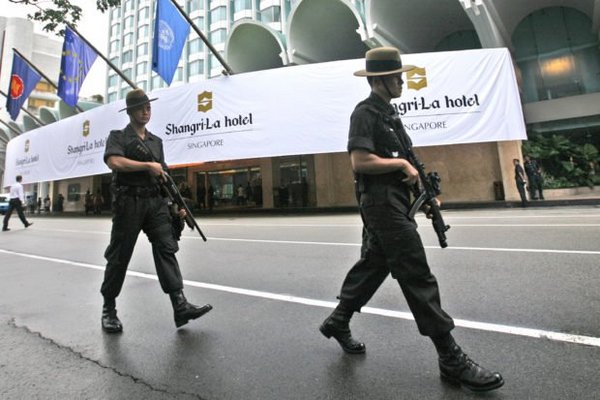
Singapore police officers patrol the streets of Singapore. /AP file photo
SINGAPORE — A new law that gives the police special powers during terrorist attacks, including widely banning journalists and members of the public from reporting on the scene, took effect in Singapore on Wednesday.
The law gives the police the power to block all communications on-site, ranging from photographs to videos, text and audio messages, for up to a month if authorities feel security operations could be compromised.
The Ministry of Home Affairs, which drafted the law, said Tuesday that the country faces a “clear and present terrorism threat, posed by home-grown radicalized individuals and foreign terrorists.”
“It is therefore important to equip the police with powers to … respond swiftly and effectively to attacks of any scale and of varying tactics, and minimize the chances that their security operations are compromised,” the ministry said.
Individuals who flout the new law face a maximum sentence of two years in jail and a fine of 20,000 Singapore dollars ($14,891).
The ministry said the law would make the police more effective in responding to terrorist threats. It cited previous attacks in Mumbai and Paris, where live broadcasts allegedly allowed terrorists to anticipate the next move of security forces.
Disclaimer: The comments uploaded on this site do not necessarily represent or reflect the views of management and owner of Cebudailynews. We reserve the right to exclude comments that we deem to be inconsistent with our editorial standards.
